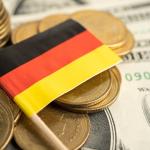Purchasing real estate in Germany can be a rewarding investment, whether you're buying a home to live in or property for investment purposes. However, it's crucial to understand the various taxes and fees involved in the process to ensure a smooth transaction and avoid unexpected costs. This guide will break down the key expenses you need to consider when buying real estate in Germany.
1. Property Transfer Tax (Grunderwerbsteuer)
One of the most significant costs you'll encounter is the property transfer tax, known as Grunderwerbsteuer. This tax is levied on the purchase price of the property and varies by state, typically ranging from 3.5% to 6.5%.
- Example: If you buy a property in Berlin for €500,000, with a transfer tax rate of 6%, you'll pay €30,000 in transfer tax.
2. Notary Fees (Notarkosten)
In Germany, all real estate transactions must be notarized. The notary ensures that the transaction complies with legal requirements, drafts the sale contract, and registers the property with the land registry. Notary fees are usually around 1% to 1.5% of the purchase price.
- Example: For a €500,000 property, notary fees could be between €5,000 and €7,500.
3. Land Registry Fees (Grundbuchkosten)
The land registry records the change of ownership and any mortgages on the property. Land registry fees are typically about 0.5% of the purchase price.
- Example: On a €500,000 property, land registry fees would be approximately €2,500.
4. Real Estate Agent Fees (Maklerprovision)
If you use a real estate agent, their commission is usually between 3% and 7% of the purchase price, plus VAT. The exact percentage can vary depending on the region and agreement between the buyer and the agent.
- Example: For a €500,000 property with a 5% agent commission plus 19% VAT, the fee would be €29,750.
5. Mortgage Fees
If you're financing your property through a mortgage, there may be additional costs such as arrangement fees, property valuation fees, and ongoing interest payments. These fees vary by lender and loan terms.
- Example: Mortgage arrangement fees can range from 0.5% to 1.5% of the loan amount.
6. Ongoing Property Taxes
After purchasing the property, you'll also be responsible for ongoing property taxes. The most common is the annual property tax (Grundsteuer), calculated based on the value of the land and buildings.
- Example: Annual property taxes might range from a few hundred to several thousand euros, depending on the property's location and size.
Tips for Budgeting
- Calculate Total Costs: When budgeting for your property purchase, ensure you include all the above fees in addition to the purchase price.
- Consult Professionals: Engage with a notary, real estate agent, and tax advisor early in the process to get accurate estimates and advice tailored to your situation.
- Negotiate Fees: In some cases, you may be able to negotiate lower fees, particularly with real estate agents.
- Understand Financing Options: Shop around for mortgage deals to find the best terms and lowest fees.
Conclusion
Understanding the taxes and fees associated with buying real estate in Germany is crucial for a smooth and successful transaction. By accounting for these costs in your budget and seeking professional advice, you can navigate the German property market with confidence and avoid any financial surprises.
For more detailed information and personalized advice, feel free to contact us. Our team of experienced professionals is here to assist you every step of the way in your real estate journey.
 Exploring Germany's Economic Powerhouse: A Comprehensive Guide
Exploring Germany's Economic Powerhouse: A Comprehensive Guide
 Understanding Property Taxes and Fees When Buying Real Estate in Germany
Understanding Property Taxes and Fees When Buying Real Estate in Germany